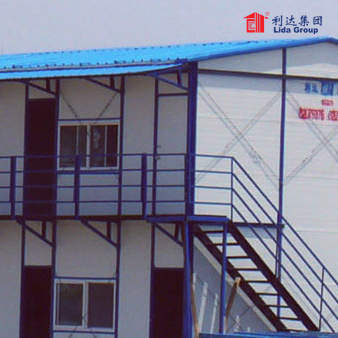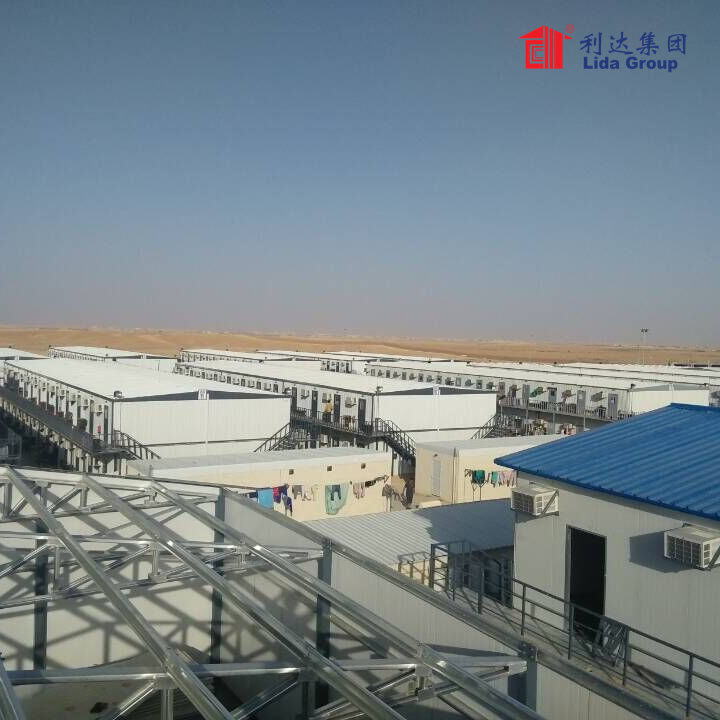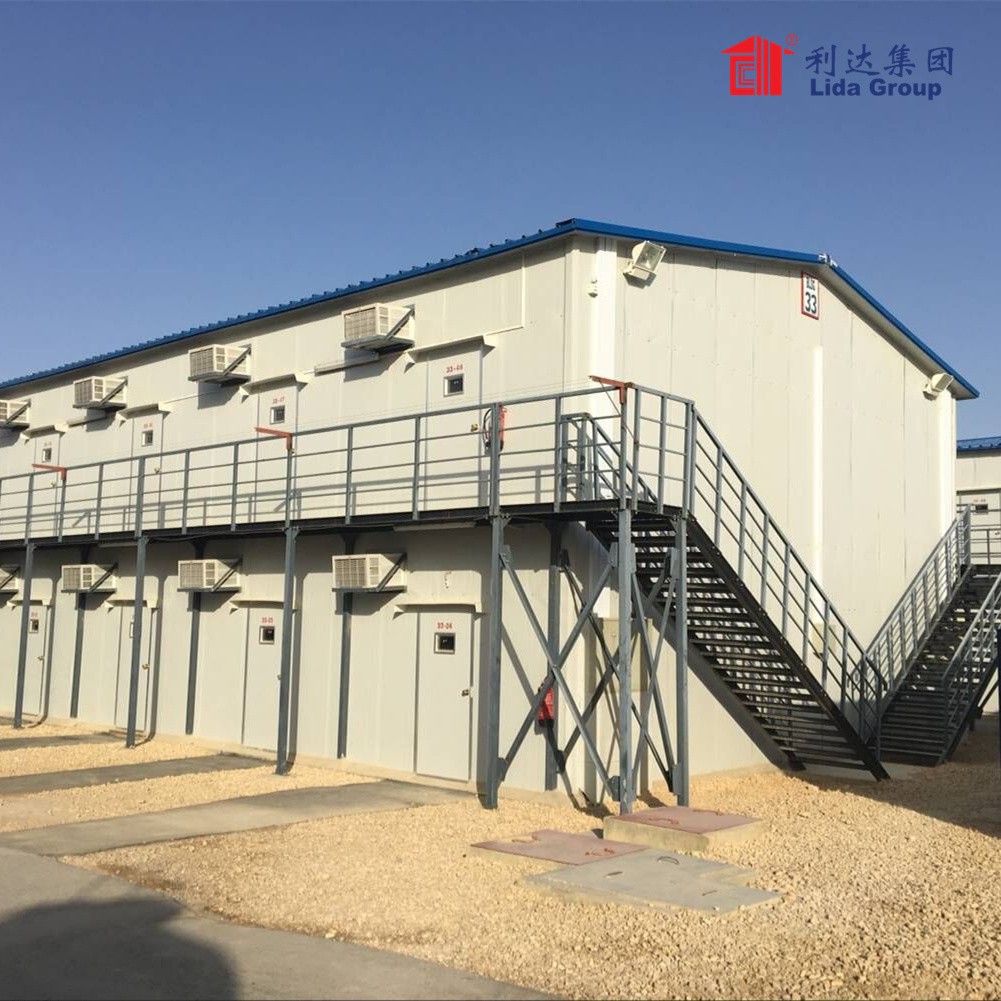The Advantages of Prefab Houses: A Sustainable and Cost-Effective Housing Solution
Lida Group2024-03-080 views
The Advantages of Prefab Houses: A Sustainable and Cost-Effective Housing Solution
In recent years, prefab houses have gained significant popularity as a sustainable and cost-effective housing solution. Prefabricated houses, also known as modular houses or prefab homes, are constructed off-site in a factory-controlled environment and then transported to the final location for assembly. This innovative construction method offers numerous advantages over traditional on-site construction. In this article, we will explore the advantages of prefab houses and why they are becoming an increasingly popular choice for homeowners.
Sustainability:
Prefab houses are known for their sustainable construction practices. The manufacturing process of prefab houses involves the efficient use of materials and resources. Since the construction takes place in a controlled factory environment, waste is minimized, and materials can be recycled and reused. Additionally, the energy consumption during the manufacturing process is optimized, reducing the environmental impact. With the growing focus on sustainable living, prefab houses provide a greener alternative to traditional construction methods.Cost-Effectiveness:
One of the primary advantages of prefab houses is their cost-effectiveness. The controlled factory environment allows for streamlined production processes and efficient use of resources. The assembly line approach reduces labor costs and minimizes material waste. Moreover, the bulk purchasing of materials by prefab house manufacturers often results in lower material costs compared to traditional construction. As a result, prefab houses are generally more affordable and offer significant cost savings to homeowners.Time Efficiency:
Prefabricated houses are constructed in a fraction of the time required for traditional on-site construction. Since the manufacturing process and assembly occur simultaneously, the overall construction time is significantly reduced. While the factory constructs the modules, the site preparation and foundation work can proceed concurrently, saving valuable time. This time efficiency is particularly advantageous for those who require a quick housing solution or have time constraints.Quality Control:
Prefab house manufacturers adhere to stringent quality control measures during the construction process. The controlled factory environment allows for precise construction and ensures consistent quality across all modules. Skilled workers and advanced machinery contribute to the high-quality craftsmanship of prefab houses. Additionally, the factory setting eliminates the risk of weather-related damage during construction, further enhancing the overall quality of the finished product.Design Flexibility:
Contrary to popular belief, prefab houses offer a wide range of design options and customization possibilities. Manufacturers provide a catalog of standard designs that can be modified to suit individual preferences. Homeowners can choose from various floor plans, finishes, and architectural styles to create their dream home. Additionally, prefab houses can be easily expanded or modified in the future to accommodate changing needs, making them a flexible long-term housing solution.Structural Strength:
Prefab houses are built using high-quality materials and are designed to withstand transportation and assembly processes. The modules are constructed to be structurally sound and meet building codes and regulations. Additionally, the use of standardized construction techniques in the factory ensures consistent strength and durability across all modules. Prefab houses are engineered to withstand various weather conditions and offer the same level of structural integrity as traditionally built homes.Energy Efficiency:
Prefab houses can be designed to be highly energy-efficient. With advancements in insulation materials and sustainable technology, prefab houses can achieve superior energy performance. The controlled factory environment allows for precise installation of insulation, ensuring minimal heat loss and improved energy efficiency. Additionally, homeowners can incorporate energy-efficient appliances, solar panels, and other sustainable features into their prefab houses, further reducing energy consumption and utility costs.Reduced Disruption:
Unlike traditional construction, prefab house assembly causes minimal disruption to the surrounding environment and neighboring properties. The majority of the construction takes place off-site, mitigating noise, dust, and traffic disruptions in the local area. This reduced disruption is especially beneficial for urban settings or areas with strict construction regulations. Prefab houses offer a more efficient and considerate construction process, minimizing inconveniences for homeowners and the community.Mobility and Reusability:
Prefab houses are not limited to permanent structures. They can be designed as modular units that can be easily disassembled and relocated if needed. This mobility feature is advantageous for those who require temporary or portable housing solutions, such as construction site offices or disaster relief shelters. Furthermore, prefab houses can be repurposed or recycled, reducing waste and contributing to a circular economy.Contractor Collaboration:
Prefab houses often involve close collaboration between homeowners and prefab house contractors. These contractors specialize in the design, manufacturing, and assembly of prefab houses, ensuring a smooth and efficient process. Their expertise and experience in prefab construction contribute to the successful realization of the homeowner's vision. Working with prefab house contractors allows homeowners to benefit from their knowledge and guidance throughout the entire construction journey.
In conclusion, prefab houses offer a sustainable, cost-effective, and efficient housing solution for homeowners. With their emphasis on sustainability, quality control, design flexibility, and energy efficiency, prefab houses are becoming an increasingly popular choice. The advantages of prefab houses, including their sustainability, cost-effectiveness, time efficiency, and design flexibility, make them an attractive option for those looking for a modern and sustainable housing solution. As the demandfor eco-friendly and affordable housing continues to grow, prefab houses are poised to play a crucial role in meeting these needs. With Lida's commitment to innovation and quality in the prefab house industry, they are at the forefront of providing sustainable and cost-effective housing solutions to homeowners.



You may also like

Doorfold Partition Wall Applied To Restaurants

Banquet Hall And Vip Room Sliding and Folding Partitions

Children's playground

Acoustic Collapsible Folding Partition for Commercial Room

Operable Folding Acoustic Partition Wall for Saudi Mecca Hotel

Doorfold Partition Wall Project Site In The Edge Leadership Center Nairobi Kenya

Accessories of Partition

Movable Acoustic Folding Partition Wall for Yun Lan Bay Hotel

Happy Holiday of Doorfold’s Excellent Staffs in 2019

Testing loss